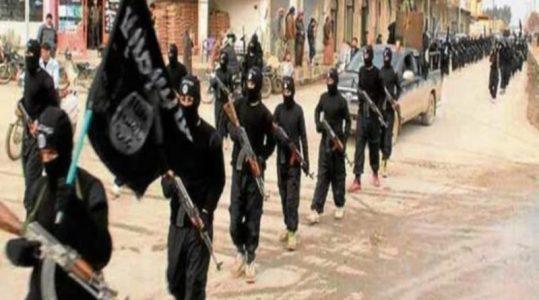
Islamic State terrorists return to Mindanao and pose serious threat
Battle-hardened Islamic State (IS) fighters fleeing lost territory in Syria and Iraq have returned to Mindanao to try to establish a province for the jihadi group in Southeast Asia, the Washington Times reported on Sunday.
Quoting figures from the Washington-based Center for Strategic and International Studies (CSIS), the Times said there were more IS-affiliated fighters in Southeast Asia, especially from armed groups based in the Autonomous Region in Muslim Mindanao (ARMM), than there ever were battling US forces in Afghanistan and Iraq during the height of the US-led wars there.
The Times said a US Department of State assessment had put the Philippines for the first time among the five countries with the most terrorist attacks.
The Philippines, along with Afghanistan, India, Iraq and Pakistan, were the sites of nearly 60 percent of terrorist attacks last year, the Times quoted state department officials as saying in their latest assessment of terrorist activity around the globe.
“[IS], al-Qaida and their affiliates have proven to be resilient, determined and adaptable,” the paper quoted Ambassador Nathan Sales, the state department’s top counterterrorism coordinator, as saying.
“They have adjusted to heightened counterterrorism pressure in Iraq, Syria, Somalia and elsewhere,” Sales said in the Times report.
“Foreign terrorist fighters are heading home from the war zone in Iraq and Syria or traveling to third countries to join [Islamic State] branches there,” he said.
As the IS plan for a homeland in the Middle East collapses, foreign fighters have found other places to wage war against the West, including in their own backyards, Greg Poling, an Asia analyst with CSIS, said in the Times report.
“As we execute victories on the ground in Iraq and Syria, [IS] is going to disperse” to other areas around the globe, including Southeast Asia, Poling said.
“The southern Philippines is still an ungoverned region,” he said.
The threat, the Times said, exploded into view in May last year when members of the Maute gang of extortionists and a faction of the Abu Sayyaf bandit group that had pledged allegiance to IS overran the city of Marawi in Lanao del Sur province and held it for five months.
Black IS banners flew over Marawi — the first city in Southeast Asia to be seized by an IS affiliate — until October, when the Philippine military, backed by US intelligence and air power, took back control.
Although the leaders of the Maute and Abu Sayyaf groups were killed in the aftermath of the siege of Marawi, the Times quoted Poling as saying, the goal of establishing an IS caliphate or province in Southeast Asia, with the southern Philippines as the de facto capital, will remain a key goal of the jihadi group’s affiliates in the region.
“Affiliates will try to hold territory, they will try to establish a new caliphate,” Poling said in the report.
“That is a requirement if you want to be an [IS] affiliate, and they did it [in Marawi]. They held a major Philippine city for [five] months—they were not supposed to be able to do that,” he said.
The Times report came as government forces arrested three suspected members of an IS-linked terrorist group in Tupi, South Cotabato province.
Chief Supt. Eliseo Tam Rasco, police director for the Soccsksargen region, said Akmad Bulacon and his sons Muktar and Zandro were arrested during a joint police-military raid on their house at Barangay Palian in Tupi.
Two IS flags, M-16 rifles, ammunition, explosives and materials for making bombs were seized from the house during the raid early on Monday.
Rasco said the black IS flags indicated that the Bulacons were members of the IS-linked terror group Ansar al-Khilafa Philippines.
Two other sons of Bulacon—Mohammad and Arafat—who are wanted for murder escaped during the raid, Rasco said.
President Duterte placed the entire island of Mindanao under martial law at the height of the Marawi siege to quell the terrorist uprising.
Congress extended martial law to the end of this year and may extend it through next year, the Times said.
Source: Inquirer





